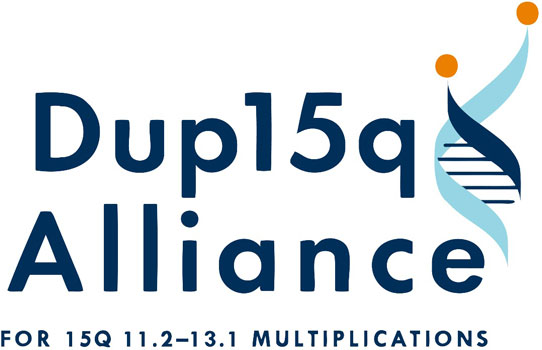Care/Treatments
To establish the needs of those diagnosed with Dup15q syndrome, a complete review of symptoms, physical examination, assessments of possible feeding difficulties associated with hypotonia, neurologic examinations including assessment for seizure activity and baseline EEG, and consultation with a clinical geneticist and/or genetic counselor are recommended. A need for ongoing specialist care is frequent.
It is suggested that a multidisciplinary team evaluate infants for motor and speech development and later assist in referrals for appropriate educational programs. Supportive care may include: occupational and physical therapy, alternative and augmentative communication, behavioral therapy (e.g., applied behavioral analysis therapy), psychotropic medications for behavioral manifestations, and standard management for seizures. It is also notable that behavioral changes may be indicators of physical problems such as constipation or pain. Individuals with Dup15q syndrome should be carefully examined if there is an acute change in behavior.
It is recommended that periodic surveillance be conducted for neurodevelopmental and/or developmental/behavioral, and monitoring for evidence of seizures and/or change in seizure type.
In terms of medical management of the symptoms associated with dup15q syndrome, families should be aware that individuals with chromosome 15 duplications may tolerate medications differently and may be more sensitive to side effects for some classes of medications, such as the selective serotonin reuptake inhibitors (SSRIs). These medications should be used with caution and any new medication should be instituted in a controlled setting, with slow titration up to the expected therapeutic dose, and with a clear idea of the expected outcome of the treatment. This includes supplements.
Individuals with chromosome 15q11.2-13.1 duplication syndrome have special health care needs.
- These individuals have a lifelong developmental disability.
- They may need health and related services more than most individuals.
- They may receive these services from various public and private agencies in the health, education, and social service sectors.
- As a result of complex conditions and many different providers, families of affected individuals may need help in coordinating their care.

